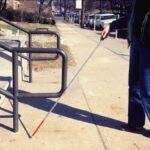
In the last decade of the 18th century, rising star Ludwig van Beethoven (1770-1827) was on Vienna’s music scene. He made his name as a pianist by performing and composing piano sonatas with severe technical demands.
At the same time, he produced music for a range of musical ensembles and events. Because Ludwig van Beethoven was a freelance musician, he had to be productive.
In reality, he was the city’s first significant composer who did not rely on a regular performance schedule.
At the premiere of Ludwig van Beethoven’s Ninth Symphony in 1824, the composer could not hear the rapturous applause from the audience and had to be turned around to see them cheering.
Read also: Who Invented the Hearing Aid
What caused Beethoven’s hearing loss?
There are several theories about the caused Beethoven’s deafness. It includes:
Heredity
Heredity is the most likely cause of Beethoven’s deafness. His grandfather and father were both professional musicians who died of alcoholism.
It is believed that they both had a genetic form of hearing loss.
While there are other possible causes of Beethoven’s deafness, such as nerve damage from syphilis, it is most likely that he inherited his hearing loss from his father or grandfather.
This form of hearing loss is often progressive, which explains why Beethoven slowly lost his hearing over the course of his life.
Lead Poisoning
Some experts believe that Beethoven may have suffered from lead poisoning.
There was a significant amount of lead in the environment during his lifetime, and it is known that he was exposed to it through his work as a painter.
Symptoms of lead poisoning include hearing loss, which Beethoven began to experience in his early 30s, and neurological problems, which could explain his erratic behavior.
Although there is no definitive proof that Beethoven had lead poisoning, it is certainly a possibility that should be considered when studying his life and work.
Nerve Damage from Syphilis
Another theory about the cause of Beethoven’s deafness is that it was due to nerve damage from syphilis.
This was a common disease during his lifetime, and it is known that he had at least one sexual partner who had the disease.
Symptoms of syphilis include hearing loss, which would explain Beethoven’s progressive deafness.
However, there is no definitive proof that Beethoven had syphilis, and this theory remains unproven.
Autoimmune Disease
Another possibility is that Beethoven suffered from an autoimmune disease that caused his hearing loss. Autoimmune diseases are disorders in which the body’s immune system attacks healthy tissue.
This can cause a wide range of symptoms, including hearing loss. There is no definitive proof that Beethoven had an autoimmune disease, but it is possible that his hearing loss was caused by this type of disorder.
While the exact cause of Beethoven’s deafness is unknown, it is most likely that it was due to hereditary factors.
He may have also been exposed to lead poisoning or had an autoimmune disease that caused his hearing loss. However, these theories remain unproven.
Read also: What’s the True History of the Kelly Gang
At what age did Beethoven go deaf?
Beethoven is one of the most celebrated composers in history, known for his unique and innovative style as well as his profound personal struggles.
One of the most well-known facts about Beethoven is that he composed some of his greatest works after he had lost his hearing.
However, the circumstances surrounding his deafness are not as well known.
Beethoven began to experience hearing loss in his late 20s, but it was not until he was 44 that he completely lost his hearing.
Read also: Who Was Jack The Ripper
How did Beethoven’s deafness affect his life and work?
Beethoven’s deafness had a profound effect on his life and work. He became increasingly isolated from the world as his hearing loss progressed.
This is evident in his music, which became increasingly introspective and personal. Beethoven also experienced great frustration and even desperation as a result of his deafness.
He once said, “For me, there can be no recreation in society, for I cannot hear the conversation of others.”
This quote reveals the immense toll that Beethoven’s deafness took on his mental and emotional state.
In spite of all these challenges, Beethoven continued to compose some of the most beautiful and innovative music in history. His struggle with deafness only made his achievements all the more impressive.
Read also: How Many U.S. Presidents Have Been Assassinated
Final words
While the exact cause of Beethoven’s deafness is still unknown, it is generally believed to have been the result of a combination of factors.
One theory points to his habit of immersing his head in cold water as a way to relieve pain from an ear infection. This practice may have caused damage to the delicate inner structures of his ear, leading to hearing loss.
Another theory suggests that Beethoven may have had a condition known as autosomal dominant nonsyndromic sensorineural deafness, which can be passed down from parents to their children. However, this theory is less supported by evidence.
Whatever the cause, Beethoven’s deafness began to take its toll in the early 1800s.
He gradually lost his hearing, and by 1814 he was completely deaf.
In spite of his disability, Beethoven continued to compose music, and some of his greatest works were created during this time.
He also continued to perform, using a special horn that projected sound directly into his ear. Beethoven’s struggle with deafness is an important part of his story, and it is one that continues to inspire people today.


